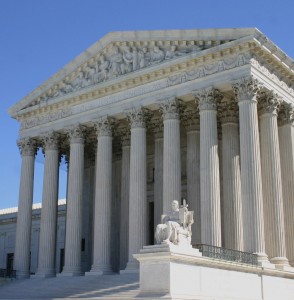 The United States Supreme Court said on Thursday that the government could not force health organizations that are private, to denounce prostitution to get money to help fight AIDS across the globe.
The United States Supreme Court said on Thursday that the government could not force health organizations that are private, to denounce prostitution to get money to help fight AIDS across the globe.
The courts’ Chief Justice, John Roberts, who wrote for the court, said the pledge of anti-prostitution in the AIDS funding law of 2003 improperly restricts the U.S. Constitutional rights of the groups.
Four groups working in South America, Africa and Asia challenged the provision within the law, arguing the work they performed did not involve prostitution.
It said if groups were not required to pledge opposition to sex trafficking and prostitution, they could conceivably spend private monies in such a way that might undermine the mission of the government.
However, Roberts in the court’s 6-2 decision said the pledge goes beyond just preventing the recipients from using the private funds in a manner that could undermine the government.
Roberts wrote that it required the groups to pledge their alliance to the policy of the government to eradicate prostitution.
In dissention, Justices Clarence Thomas as well as Antonin Scalia, said the government’s pledge requirement was just a way of selecting agents that are suitable to implement a chosen strategy of the government to eradicate both HIV and AIDS. Scalia wrote that under our Constitution that is permissible.
